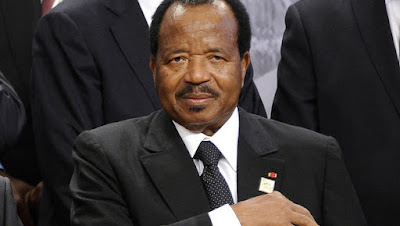By Mike O. Akpati
The loud silence over the activities of the Fulani
herdsmen has reached high heavens now. Tears are flowing from all ends and the
heartless herdsmen I heard were boasting the other day that nobody can dare
them as they have absolute right to tread and trample on our soil, destroy our
crops planted with hard earned loans or direct labour and we can do nothing.
Today, the only unifying theme from all corners of
the country is the needless cry for the loss of a father, mother, brother,
sister, nice, nephew friends’ well-wishers. In some cases children have been
rendered orphans and homeless in a twinkle of an eye.
The other day, I thought aloud about the whole
menace and was prompted to ask one question. Who is that successful business
man who in his quest to increase his profit goes ahead to rob his customer of
his wealth then kill him, yet expects that the victim’s relations would
patronize him?
Ohaneze Ndigbo captured it vividly when
they said:
“… Our people were killed for cows;
…We are not at war yet they treat us like this in our own country, and our own
land!
“… It also baffles us that the herdsmen are allowed to bear prohibited
sophisticated firearms, and are NEVER arrested, while for other Nigerians it is
against the law….
‘‘…It is high time people are encouraged to defend themselves, ‘first’ before
placing reliance on any other person; and should articulate themselves to wade
–off any invader in future;
“… That we cannot morn our kits and kin, and the hostility against us in our
land by the continuous patronage of our assailants; hence ALL FAMILIES IN IGBO LAND SHOULD
DE-LIST BEAF FROM THEIR MENU
“… There shall be no more use of Fulani Cows for any ceremony like Burials,
Funerals, Weddings, Marriages, and Thanksgiving Celebrations etc…
“… He who kills his customers, will no longer expect patronage, as he has
killed his market...”
Come to think of it how come we buy their Onion, Potatoes, yam,
Tomatoes, and many more from their unharrassed land in the north as their farm
yield, then they come with their cattle to our land destroy our crops, put us
in debt, kill our kits and kin and finally sell their same cows to us for
slaughter at the burial of their victims? It does not make any sense! The
madness must stop.
Again I hear that the president has given matching order to the
security operatives in the country to fish out any or every of the culprits
involved the Enugu, Agatu and other similar killings. I am certain
that this is even a tall order because evidence abound that no record of
arrests and proper prosecution exists to date hence the impunity.
It is simply an insult to my sense of being that I
continue to patronize my enemy. It does not make any common sense that in
consideration of the comparative advantage in business, we buy their produce
and finally cow meat from our northern trade partner. They transport these
products to all the markets in the South and rear their cows uninhibited, and
never molested and then they take their profit home.
We grow our Cassava, Yam, Okra, Melon, Vegetables
and fruits etc which we ought to earn our profit from. But our supposed
partners in trade send their cows to ravage our crops, impoverish us and reduce
us to debtors, and when we ask why we are raided and killed at night while in
our sleep! We are then expected to buy their cows from the killer for the
burial ceremony of his victim! It does not add up. I will not do that.
Personally, like the Ohaneze Ndigbo, I have taken my stand, I do not know about you. Cow
Beef will exit my meat effective immediately to avenge the death of my cousin a
permanent secretary in Delta state who was needlessly killed by Herdsmen at
Ogume in 2012. You may not join me in this. But there is penalty for both of
us. If you do not join me now, I will not be at the burial to mourn with you
because you are an associate killer of your friends and relations by encouraging
the sales and rearing of cows in Delta
State.
It is high time government takes the citizenry seriously in
matters of great concern. If the cattle herdsmen are free to not only carry and
shoot indiscriminately without sanction, I have every right to defend my
territory by any means possible.
Today’s VANGUARD May 5, 2016, states in its front page
that: “Spurred by the
divergent comments trailing the Fulani herdsmen attacks in communities across
Nigeria, senators from the North, under the aegis of Northern Sentor’s
yesterday warned governors, leaders and community heads in the country to
desist from making inflammatory statements that could further overheat the
polity… they also warned that there would be no Nigeria, if other parts of the
country asked Fulani herdsmen to leave their communities and states…”
It
is absurd that at this point in time, rather than thinker what mode of
appeasement would be appropriate for the affected states and communities, these
thoughtless senator are deploying threats! It is a shame!
*Mike
O. Akpati is a commentator on
public issues



















